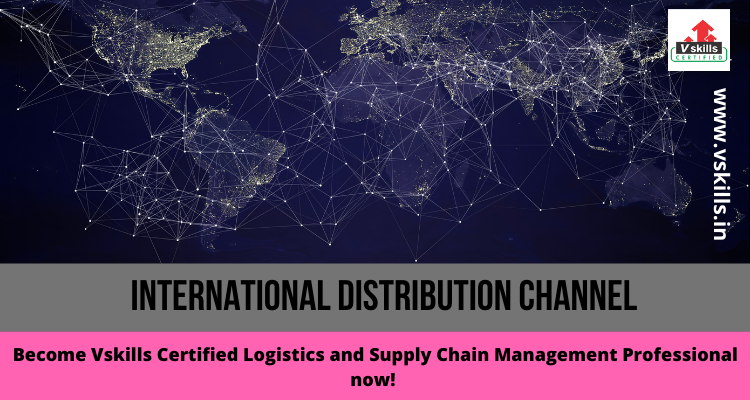International Distribution Channel
Let’s learn more about International Distribution Channel. Distribution plays an important role in the implementation of the international marketing program as it enables the products and services to reach the ultimate customer. An international marketing firm has the option of managing its distribution function either directly or indirectly through middleman or a suitable combination of the two.
Due to physical distance, and also the differences in geographical, cultural and market characteristics of the trading countries, use of middlemen is found quite prevalent in international marketing. In fact, distribution is one such primary functions of marketing which makes use of the services of external independent agencies that bind the firm in a long term relationship. Distribution has two elements, the institutional and the physical. Physical distribution aspects cover transport and warehousing.
The longer the channel, the more likely that producer’s profits will be indirectly reduced. This is because the end product’s price may be too expensive to sell in volume, sufficient for the producer to cover costs. Yet cutting channel length may be impossible, as country infrastructure requirements may dictate them being there.
As already mentioned international marketers have the options of organizing distribution of their goods in foreign markets through the use of indirect channels, i.e. using intermediaries, direct channels or a combination of the two in the same or different markets.
- Indirect Distribution: Indirect channels are further classified based on whether the international marketer makes use of domestic intermediaries. An international marketer therefore, can make use of the following types of intermediaries for distribution in foreign markets.
- Domestic Overseas Intermediaries
- Commission buying agents
- Country-controlled buying agents
- Export management companies (EMCs)
- Export merchants
- Export agents
- Piggy backing
- Foreign Intermediaries
- Foreign Sales Representatives
- Foreign Sales Agents
- Foreign Stocking and Non-Stocking Agents
- State Controlled Trading Companies
- Direct Distribution: The options available to international marketer in organising direct distribution include sending representatives abroad from the headquarter, setting up of local sales/branch office in the foreign country or for a region, establishing a subsidiary abroad, entering into a joint venture or franchising agreement.
Companies having long-term interest in international marketing find it expedient to deploy their own sales force in foreign markets. This helps them in increasing their sales volume through committed market development activities, better control and motivation of foreign intermediaries being used, and paving the way for smoother transition to direct distribution and marketing.



